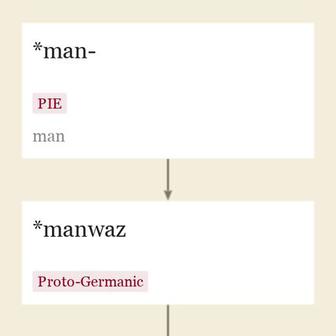clergyman n.
"
Entries linking to clergyman
c. 1200, clergie "
Meaning "
The ability to read, being originally merely the test of the 'clergy', or clerical position, of the accused, came at length to be in itself the ground of the privilege, so that the phrase became = 'benefit of scholarship' [OED]

"
Sometimes connected to root *men- (1) "
Specific sense of "
Man also was in Old English as an indefinite pronoun, "
As "
Man-about-town "
So I am as he that seythe, 'Come hyddr John, my man.' [1473]
MANTRAP, a woman's commodity. [Grose, "Dictionary of the Vulgar Tongue," London, 1785]
At the kinges court, my brother, Ech man for himself. [Chaucer, "Knight's Tale," c. 1386]
1670s, "
updated on December 22, 2017